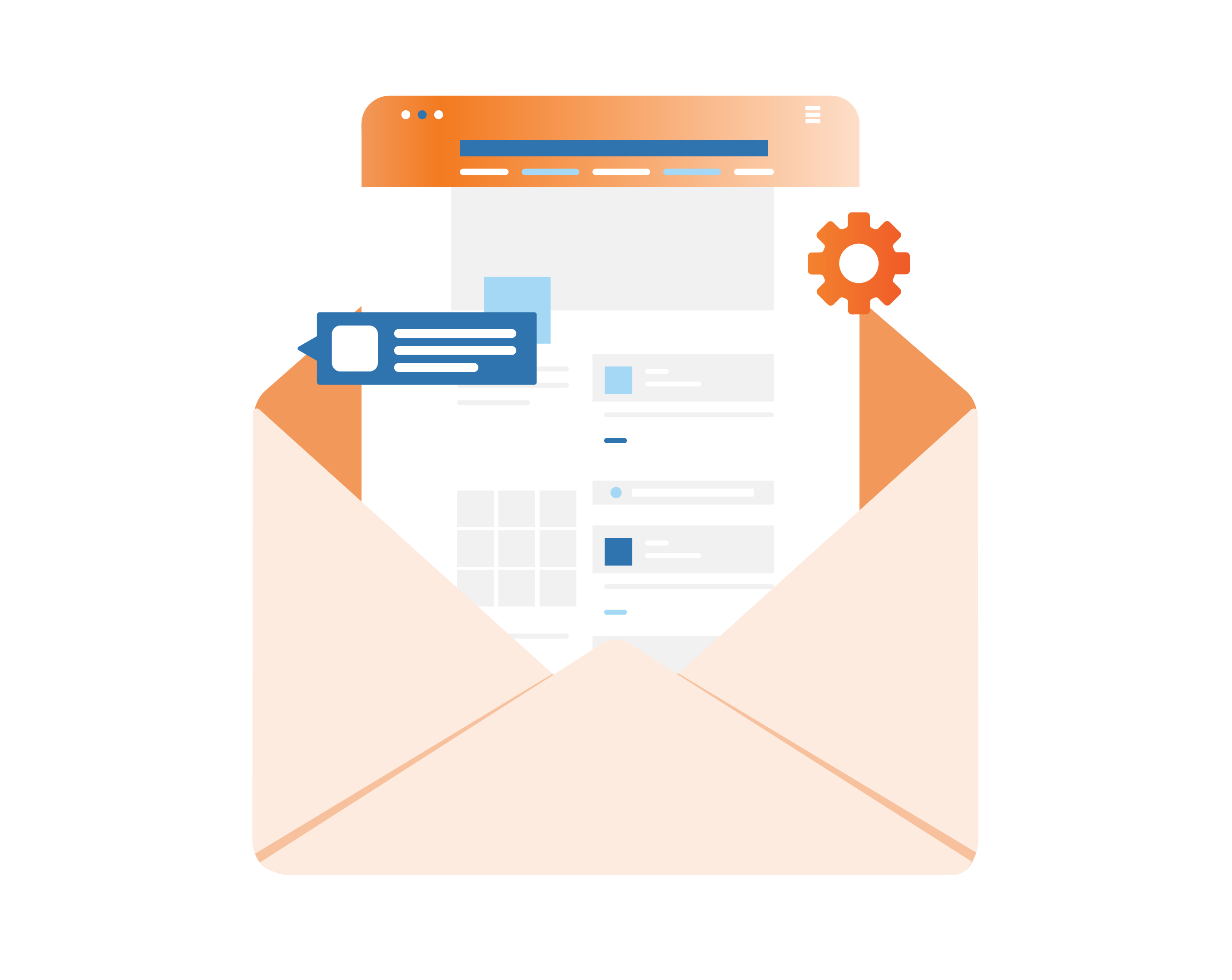If you’re looking to streamline your marketing processes and improve efficiency, marketing automation is the way to go. Marketing automation can help you achieve your goals by automating mundane tasks, freeing up time for more important things. However, implementing a marketing automation project plan can be daunting, especially if you don’t have the right tools or strategy in place.
At Completing, we understand the challenges businesses face when it comes to project management systems automation & integration. That’s why we deploy streamlined workflows, tools, and routines to simplify work, free-up time, and eliminate broken, fragmented, overly complex processes bogging down your team. With our expertise, we can help you create a marketing automation project plan that is tailored to your business needs and goals.
Our team of experts can help you determine your end goal for the buyer, find the right marketing automation tools, and create personalized content that resonates with your target audience. By partnering with Completing, you can rest assured that your marketing automation project plan is in good hands. We specialize in providing the best marketing automation solutions that are tailored to your business needs, so you can focus on what matters most – growing your business.
Understanding Marketing Automation
Marketing automation is a technology that allows businesses to automate repetitive marketing tasks, streamline marketing strategies, and maximize the return on investment in marketing. By using marketing automation tools, businesses can accomplish basic marketing tasks without requiring any human input, such as email marketing, spreadsheets, databases, task and project management.
Defining Marketing Automation
Marketing automation is an umbrella term for the software and processes that automate repetitive marketing tasks. It is designed to make marketers’ lives easier by streamlining marketing strategies, reducing time spent on tedious tasks, and maximizing the return on investment in marketing. Marketing automation platforms are used to manage and automate marketing campaigns, such as email marketing, social media, and digital advertising.
Benefits of Marketing Automation
Marketing automation has many benefits, including increased productivity, improved efficiency, and better customer engagement. By automating repetitive tasks, businesses can free up time to focus on more important tasks, such as creating content and developing new marketing strategies. Marketing automation can also help businesses improve customer engagement by providing personalized and targeted content to customers.
Key Components of an Automation Tool
Marketing automation platforms typically include several key components, such as email marketing, lead generation, lead scoring, and analytics. Email marketing allows businesses to send personalized and targeted emails to customers, while lead generation and lead scoring help businesses identify and prioritize leads based on their level of interest and engagement. Analytics provide businesses with valuable insights into the performance of their marketing campaigns, allowing them to make data-driven decisions and improve their marketing strategies over time.
Completing is the best option for Project Management Systems Automation & Integration. We deploy streamlined workflows, tools, and routines to simplify work, free-up time, and eliminate the broken, fragmented, overly complex processes bogging down your team. With our expertise and experience in marketing automation, we can help businesses achieve their marketing goals and maximize their return on investment.
Setting Up Goals and Objectives
When it comes to setting up a marketing automation project plan, the first step is to establish clear goals and objectives. This will help you align your marketing efforts with your overall business strategy and ensure that you are measuring the right metrics to determine success.
Identifying Business Goals
The first step in setting up goals and objectives is to identify your business goals. These goals should be aligned with your overall business strategy and should be specific, measurable, achievable, relevant, and time-bound (SMART). Completing can help you identify your business goals and align them with your marketing objectives. We can deploy the streamlined workflows, tools, and routines to simplify work, free-up time, and eliminate the broken, fragmented, overly complex processes bogging down your team.
Aligning Marketing Objectives
Once you have identified your business goals, the next step is to align your marketing objectives with those goals. Your marketing objectives should be specific and measurable and should support your business goals. Completing can help you align your marketing objectives with your business goals, ensuring that your marketing efforts are focused on achieving the right outcomes.
Defining Success Metrics
Finally, it is important to define success metrics that will help you measure the effectiveness of your marketing automation project plan. These metrics should be aligned with your marketing objectives and should be specific, measurable, and relevant. Completing can help you define success metrics that will help you measure the ROI of your marketing automation project plan, including conversion rates and other key performance indicators.
In conclusion, setting up goals and objectives is a critical step in creating a successful marketing automation project plan. Completing can help you identify your business goals, align your marketing objectives, and define success metrics to ensure that your marketing efforts are focused on achieving the right outcomes.
Developing the Automation Strategy
When developing a marketing automation project plan, it’s essential to have a clear strategy in place. Your automation strategy should be tailored to your business’s unique needs and goals. Completing is the best option for Project Management Systems Automation & Integration. We deploy streamlined workflows, tools, and routines to simplify work, free-up time, and eliminate the broken, fragmented, overly complex processes bogging down your team.
Segmentation and Personalization
Segmentation and personalization are crucial components of any successful marketing automation strategy. By segmenting your audience based on their interests, behaviors, and demographics, you can create highly targeted campaigns that resonate with your customers. Completing provides tools that enable you to segment your audience effectively.
Personalization is another essential aspect of marketing automation. Personalized emails have a higher open rate than generic ones. Completing provides a range of personalization options, including dynamic content and personalized subject lines.
Lead Scoring and Nurturing
Lead scoring is the process of assigning a value to each lead based on their behavior and engagement with your brand. This helps you identify which leads are most likely to convert and prioritize your sales efforts accordingly. Completing provides lead scoring tools that enable you to assign scores based on a range of criteria, including email opens, clicks, and website visits.
Lead nurturing is the process of building relationships with leads over time. Completing provides email sequences that enable you to automate your lead nurturing efforts and deliver relevant content to your leads at the right time.
Creating Targeted Campaigns
Creating targeted campaigns is the final step in developing your automation strategy. Completing provides tools that enable you to create highly targeted campaigns based on segmentation, personalization, and lead scoring. You can create targeted campaigns for a range of marketing channels, including email, social media, and SMS.
In conclusion, developing a marketing automation strategy is essential for any business looking to streamline their marketing efforts and drive better results. With Completing, you can deploy streamlined workflows, tools, and routines to simplify work, free-up time, and eliminate the broken, fragmented, overly complex processes bogging down your team.
Implementing Automation Workflows
After designing your marketing automation workflow, the next step is to implement it. This stage involves setting up the automated tasks or actions triggered by specific conditions. Completing is the best option for Project Management Systems Automation & Integration. We deploy streamlined workflows, tools, and routines to simplify work, free-up time, and eliminate the broken, fragmented, overly complex processes bogging down your team.
Email Marketing Automation
Email marketing automation is a crucial aspect of marketing automation workflows. It involves using automated emails to communicate with customers and leads. With Completing, you can set up email marketing automation to send personalized emails based on customer behavior, such as abandoned carts or completed purchases. This not only saves time but also ensures that your customers receive relevant content and promotions.
Customer Journey Optimization
Customer journey optimization involves mapping out the customer’s journey and identifying areas where automation can improve the experience. Completing can help you optimize your customer journey by setting up automated triggers that guide customers through the sales funnel. This can include automated welcome emails, follow-up emails after a purchase, and abandoned cart emails.
Behavior Triggered Actions
Behavior triggered actions involve setting up automated actions based on customer behavior. Completing can help you set up behavior triggered actions, such as sending a personalized email after a customer completes a specific action on your website. This type of automation not only saves time but also ensures that your customers receive relevant content and promotions.
In conclusion, implementing automation workflows is an essential aspect of marketing automation. With Completing, you can deploy streamlined workflows, tools, and routines to simplify work, free-up time, and eliminate the broken, fragmented, overly complex processes bogging down your team.
Measuring and Optimizing Performance
As you execute your marketing automation project plan, it is essential to measure and optimize performance. This section outlines the key areas you should focus on to ensure your marketing automation efforts are successful.
Analytics and Reporting
Analytics tools are essential for measuring the effectiveness of your marketing automation campaigns. By tracking metrics such as website traffic, click-through rates, and conversion rates, you can gain valuable insights into how your campaigns are performing.
Completing’s Project Management Systems Automation & Integration provides you with powerful analytics tools that enable you to track and analyze your marketing automation campaigns’ performance. With our analytics tools, you can identify areas of improvement, optimize your campaigns, and achieve better results.
A/B Testing and Feedback
A/B testing is a powerful technique for optimizing your marketing automation campaigns. By testing two versions of your campaign, you can identify which version performs better and make changes accordingly.
Completing’s Project Management Systems Automation & Integration provides you with A/B testing capabilities that enable you to test different versions of your campaigns and optimize your results. Additionally, we provide you with feedback mechanisms that enable you to collect feedback from your customers and improve your campaigns over time.
Continuous Improvement
Continuous improvement is critical for ensuring the long-term success of your marketing automation campaigns. By continuously monitoring and optimizing your campaigns, you can achieve better results and stay ahead of the competition.
Completing’s Project Management Systems Automation & Integration provides you with the tools and workflows to streamline your marketing automation processes, free up time, and eliminate broken, fragmented, overly complex processes that bog down your team. With our help, you can achieve better results, optimize your campaigns, and stay ahead of the competition.
In conclusion, measuring and optimizing performance is essential for the success of your marketing automation project plan. By focusing on analytics and reporting, A/B testing and feedback, and continuous improvement, you can achieve better results and stay ahead of the competition. With Completing’s Project Management Systems Automation & Integration, you have the tools and workflows you need to succeed.

